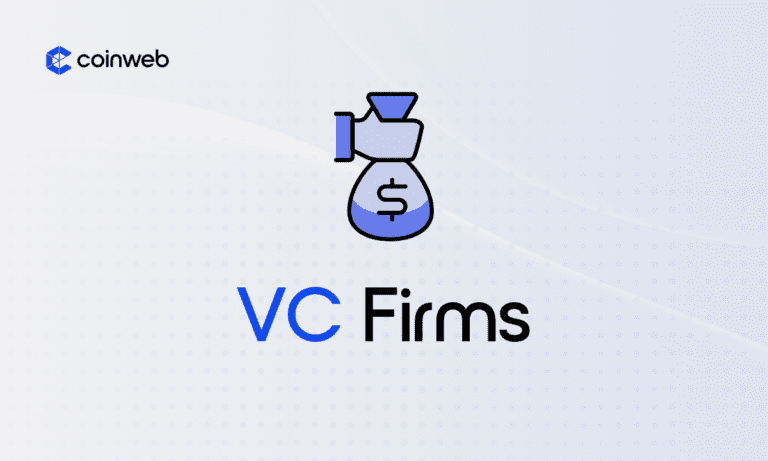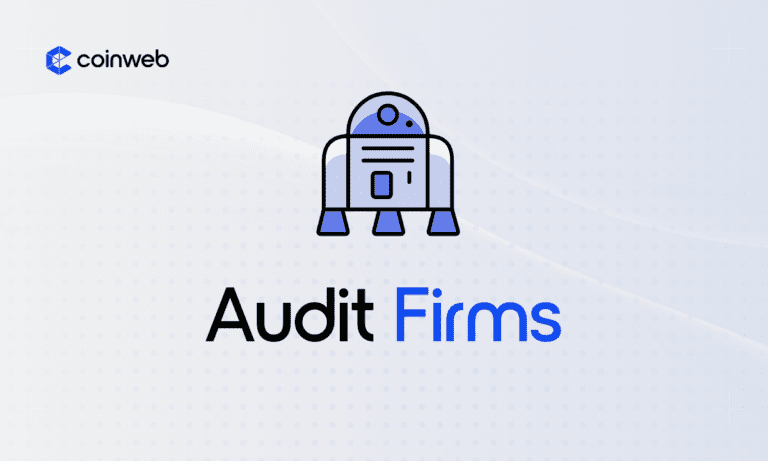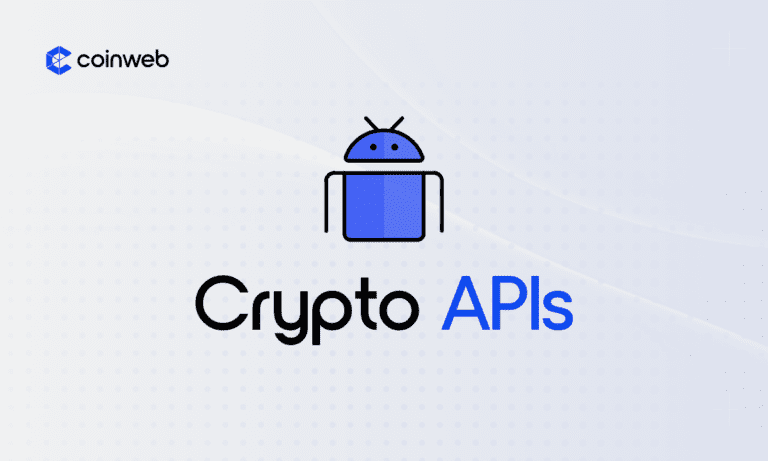TLDR
As the crypto industry evolves, venture capital funds and institutional investors increasingly seek to finance cryptocurrency businesses. We have compiled a list of the industry’s best crypto venture capital firms.
The mainstream recognition of blockchain-based startups as a viable investment has flared a surge of interest from traditional and retail investors alike. Also, the DeFi sector and the nonfungible token (NFT) market have emerged as hotspots attracting venture funds.
In this comparison, we will dive deep into venture capital financing in the crypto industry. We’ll explore how these funds harness the potential of cryptocurrencies and blockchain technology to discover lucrative investment opportunities in this ever-changing landscape of digital assets.
Introduction
Venture capital firms specializing in the crypto sector aim to allocate their investments toward promising blockchain projects and companies. Typically, these investment firms focus on early-stage startups, providing financial resources, strategic advice, and additional support to foster the growth of these entities.
Within the blockchain technology ecosystem, venture capital firms hold a crucial role by offering valuable resources that enable projects to expand and scale rapidly. Moreover, crypto-focused venture capital firms offer training and guidance to startups as they navigate the intricate landscape of blockchain technology.
By assisting entrepreneurs in comprehending the intricacies of blockchain, these blockchain capital firms ensure that their investments are well-positioned for success. The specific sectors and stages of the investment may differ across firms.
Yet, they generally prefer to invest in startups dedicated to constructing blockchain-based products, services, and platforms that effectively address real-world challenges. Notably, the most prominent sectors within the crypto scene include:
- Crypto infrastructure (Layer 1’s)
- Decentralized Finance (DeFi)
- Gaming and Metaverse
- Security tokens and protocols
- Crypto payments and remittance services
- Crypto exchanges and trading platforms
- Wallets and custodial services

How do crypto venture capital firms work
Crypto venture funding is a financing method employed to invest in early-stage blockchain projects. It involves acquiring equity or tokens in the project, granting investors a share in the future prosperity of the enterprise.
The process commences when project founders seek out venture capital firms specialized in blockchain ventures. These firms typically possess a diverse investment portfolio and meticulously assess the potential success of each project before making investment decisions.
Subsequently, the venture capital investment firm negotiates with startup companies, determining the investment amount, the nature of equity or tokens to be received by early investors, and the duration of the investment commitment.
Upon reaching a mutual agreement, investment funds are transferred from the venture capital firm to the company’s bank account. Startups can use investment funds as capital for recruiting, product development, and marketing. They typically go through multiple funding rounds like Pre-seed, Seed, and Series A/B/C/D.
Moreover, the venture capital firm offers valuable guidance, financial assistance, and advice to enhance the company’s chances of success. This entails aiding teams in formulating their business plans and facilitating connections with industry experts who can provide additional resources and counsel.
Lastly, investors may be able to exit their investments after a specific period (typically 5-7 years). This can be accomplished by selling their equity or tokens on an applicable exchange platform or directly negotiating with the project founders to establish an exit strategy.

Why are VC firms more interested in the crypto industry?
Within the realm of crypto venture capital, it is customary for firms to extend financial backing to burgeoning blockchain startups in exchange for a share of their enterprise. However, their role transcends mere capital infusion.
These crypto venture capital firms serve as steadfast allies, lending their unwavering support and guidance to these startups throughout their journey. Their invaluable assistance includes refining the startup’s product or service, identifying prospective clients and collaborators, and skillfully navigating the intricate legal and regulatory landscape.
Furthermore, crypto venture capital firms act as gatekeepers to a treasure trove of connections and resources within the industry. Leveraging their extensive network provides startups unparalleled access to industry experts, potential partners, and vital resources.
This symbiotic relationship fuels the startup’s growth and maximizes its prospects for success in the dynamic world of blockchain innovation.

Different stages of crypto venture funding
Let’s go through some of the different types of funding rounds in the crypto space.
Pre-Seed
Being the earliest stage of funding, the startups require support to recognize, develop, and test viable ideas.
During the pre-seed stage, essentially the ideation phase, the primary focus is validating the founder’s idea and assessing its feasibility as a viable product. Usually, funding for these early-stage projects is obtained from close-knit circles of family and friends without involving equity arrangements.
In some cases, if the founder has connections, angel investors may join. Unlike venture capital firms, these investors, usually wealthy individuals operating independently, can prioritize their trust in the founder over the project’s soundness.
Pre-Seed
Seed
The seed stage aims to accelerate the development of the proposed business plan. Most startups utilize seed funding to hire critical individuals, develop their projects or products, and start delivering value to the market. Then, the market potential is analyzed and validated during this stage to ensure the startup’s sustainability and potential for growth.
Seed Capital
Series A
During the Series A funding round, startups receive capital in exchange for equity or tokens. This funding stage occurs when the startup has demonstrated a convincing sustainability track record. The focus shifts towards customer acquisition, utilizing the funding to push further and expand their customer base.
Series A
Series B
The Series B funding round is dedicated to boosting growth, implementing effective marketing strategies, and increasing customer acquisition. Startups in this stage have shown high market potential, a clear path to profitability, and a competitive advantage. The funding is utilized to solidify their position and drive expansion.
Series B
Series C and upwards
In the series C funding round, startups aim to diversify into new market segments, introduce new features, and expand their operations. Also, the startup clearly understands the target customers and market potential by this stage. The funding obtained in series C is directed toward achieving long-term goals and further advancing the startup’s trajectory.
Series C
Pre-IPO/Pre-IDO
In the Pre-IPO stage, companies with proven products or services aim to go public, seeking benefits like investor access, additional capital, enhanced public confidence, and increased publicity. The Pre-IPO round primarily focuses on mergers and acquisitions, competition elimination strategies, and financial preparations for the IPO.
Pre-IPO

Types of Crypto Venture Capital Firms
Let’s review the types of VC firms in the market, their strengths and weaknesses, and why you would want funding from them.
Pre-seed venture capital firms
Pee-seed funding plays a critical role in crypto startups. It includes providing initial capital to support the development and launch of new blockchain projects. With this funding, startups refine their vision, build prototypes, and create a robust business plan.
Pre-seed funding typically comes from angel investors and early-stage venture capital firms. It funds research and development, technology infrastructure, and initial marketing efforts. For investors, Investing in pre-seed crypto-based projects needs careful evaluation of the team, technology, and market potential.
It is a high-risk strategy but can offer lucrative opportunities. Diversifying investments across multiple pre-seed projects helps mitigate risk and bolsters the chances of discovering the next successful cryptocurrency.
Pros
- Access to funding at an early stage, providing financial support for business development.
- Potential for accelerated growth and scaling, especially for companies with existing traction.
- Possibility of attracting experienced investors who can provide valuable guidance and connections.
Cons
- Giving up equity and decision-making power can limit control over the company’s future direction.
- Potential for dilution of ownership, especially if multiple funding rounds are required.
- Risk of raising too much money too early, leading to misaligned priorities and inefficient resource allocation.

Venture capitalists (covering Seed and above)
Venture capitalists are individuals or firms who invest in startups, providing capital and guidance in exchange for equity. They focus on early-stage companies with high-risk, high-reward potential. Venture capitalists’ investment strategies and goals differ, but profitability is the shared objective.
Capital is typically offered as loans or equity investments. Loans are repaid with interest, while equity investments grant the venture capitalist a stake in the startup. Mentorship and advice from experienced venture capitalists aid the startup’s growth, facilitated by their extensive networks.
Not all ventures will succeed, as early-stage companies are inherently risky. Venture capitalists target startups with the potential for substantial returns, but failure is an expected outcome, resulting in lost investments.
Venture capital is a vital funding source for startups. However, thorough research and a deeper understanding of risks are crucial before investing in a startup.
Pros
- Provide crucial capital and funding for startups.
- Offer valuable guidance, mentorship, and industry expertise.
Cons
- High-risk investments with the potential for loss.
- It may require a significant portion of the equity in the startup.

Angel investors
Angel investors personally contribute their funds to support startups in exchange for equity. Compared to venture capitalists, angel investors generally invest smaller amounts but take a more hands-on approach in their involvement with the invested companies.
Primarily, angel investors provide seed money, the initial funding required for a startup to take off. This seed funding typically covers essential launch expenses such as market research, product development, and initial marketing activities. Angel investors typically target companies in their early stages before securing venture capital funding.
Consequently, angel investors undertake more significant risks than venture capitalists, but they also have the potential to reap higher rewards if the startup becomes successful.
Startups can get funding from angel investors even if they’re not ready for venture capital. Angel investors may be more inclined to support early-stage companies yet to prove their potential. However, this also implies that angel investors may be less likely to obtain investment returns than venture capitalists.
Since angel investors invest their funds, they have the flexibility to take on more risks than venture capitalists. Nonetheless, this personal investment approach may result in angel investors having a less diversified portfolio than venture capitalists.
Pros
- Angel investors provide valuable seed funding to startups, offering a crucial source of capital to kickstart their operations and fuel initial growth.
- Angel investors often bring financial resources and their own industry experience, expertise, and networks.
Cons
- Angel investments are inherently risky, as startups may face significant uncertainties and challenges in their early stages.
- Angel investors typically invest their funds into a limited number of startups, which can result in a lack of portfolio diversification.

Factors to consider when getting funding from Crypto VC firms
When assessing a crypto venture capital fund, there are several important criteria to consider:
The firm’s assets under management
One of the essential and foremost factors to look for in a VC firm before onboarding is its assets under management (AUM). It represents the firm’s size and investments in different startups and businesses, whether liquid or cash.
Typically, this is used to judge the credibility and portfolio of the firm. If AUM represents a good performance, it can help attract more investments from big names in the industry. Eventually, the VC firm’s reputation can benefit the startup in terms of expansion.

VC’s investment portfolio
To ensure you are getting your business aligned with the right VC firm, it is critical first to evaluate its past and current investments. In addition, look for their success with their investment in Web 3 business and their ability to help the startup grow exponentially and outperform its competition. By familiarizing yourself with the investment strategy of the VC firm, you can effectively analyze its approaches, like risk management.
If portfolio companies fail, the firm’s profitability and overall success are at risk. On the other hand, high-quality projects and clients attract more investments from other investors, fueling growth and expansion for the venture capital firm.

Reputation in the market
A venture capital’s reputation in the market is one of the most important criteria. This factor heavily impacts the firm’s capacity to attract potential investors and clients in the future. A strong reputation ensures trust, which is critical for successful fundraising.
Besides that, a solid reputation allows the firm to connect with highly promising entrepreneurs and businesses. As a result, the chances of higher investments and returns are increased. Finally, a good reputation enhances the firm’s visibility, opening doors to more opportunities and favorable deals.
Competent team
Any venture capital firm’s success heavily depends on its team’s expertise and capabilities. That’s primarily because of its role in the decisions that directly affect the company’s successful investments.
Their guidance and expertise help shape the outcomes the firm achieves through its partnerships. The VC firm’s team should have solid industry knowledge, a deep understanding of the market, and the capacity to identify potential investments.
Furthermore, cultivating strong relationships with entrepreneurs and other investors is vital to making informed decisions that benefit the firm. In a nutshell, a good team helps a VC firm make profitable investments.

Market connections and resources
The profitability and success of a venture capital firm rely heavily on its market networks and valuable resources. These allow the firm to determine potential investments, do thorough research, and offer support to its portfolio companies.
That’s why access to valuable resources, including market contacts, financial advisors, legal teams, and technical professionals, certifies the firm to make well-informed decisions, optimize investment returns, and safeguard the startup interests.
Hence, having an investment arm with a robust network of investors offers additional funding opportunities for new investments and ongoing support for existing portfolio companies. Ultimately, these factors play as essential pillars for the success of a venture capital firm.

Advantages of VC Funding in Crypto
Venture capital funds bring numerous benefits to crypto startups, including access to expertise, industry connections, and the potential for substantial funding that can accelerate growth and enhance market credibility.
Legitimacy and Increased Investor Appeal
Venture capital funding adds credibility and legitimacy to crypto startups, making them more attractive to investors, including retail investors.
Compared to ICOs and other forms of crypto fundraising, VC funding undergoes thorough due diligence, including evaluating project feasibility, team capabilities, market potential, and profitability, increasing investor confidence.
Expertise and Valuations
VC funds bring in expert fund managers with specialized knowledge in company valuations, offering valuable insights into a startup’s worth and growth potential.
The experience and expertise of VCs can provide invaluable guidance and advice to crypto companies, enhancing their chances of success.
Industry Connections and Support
VC investment fosters solid relationships and connections across various industries, opening doors for collaborations, partnerships, and resource access.
In unfamiliar domains or when facing challenges, the network and support provided by VC firms can prove instrumental in overcoming obstacles.

Disadvantages of VC Funding in Crypto
VC funding in the crypto space offers advantages such as legitimacy, expertise, industry connections, and potential guidance. Still, it also brings the potential for pressure, loss of control, and repayment obligations.
Potential loss of control
VC firms seek high returns on their investments, leading to expectations of quick results, which can pressure crypto startups to deliver rapid growth.
Accepting VC funding may involve relinquishing some control and decision-making power, as investors often have a say in the company’s strategic direction.
Repayment deficits
In the event of a company’s failure, VC funds are not committed to repaying the invested capital, shifting the financial risk primarily to the startup.
While this relieves the repayment burden, it also means that the startup bears the consequences of any financial losses.
Experienced Guidance and Investment Advice
VC funds have extensive experience taking calculated investment risks and can provide valuable insights and advice to crypto companies.
Their seasoned perspective can help startups navigate the complexities of the crypto market and make informed decisions.
Emotionless Decision-Making
VC funds strive to make objective investment decisions based on financial considerations, minimizing emotional attachments to projects.
This method can effectively reduce emotional pressures on the startup and promote rational decision-making.

Alternatives to VC funding for the crypto projects enthusiasts
Here are a handful of alternatives to the funding of crypto-related projects.
STOs, IEOs, and IDOs as Alternatives to ICOs
In light of the negative reputation associated with ICOs due to past scams, legitimate cryptocurrency businesses may seek alternative funding approaches. Security Token Offerings (STOs), Initial Exchange Offerings (IEOs), and Initial DEX Offerings (IDOs) have emerged as viable options.
Retail Investors and Small Funding Amounts
Unlike venture capitalists and angel investors who can inject significant amounts of capital into a project, STOs, IEOs, and IDOs are designed to attract retail investors. These funding methods allow individuals with smaller investment amounts to participate, democratizing the investment landscape and increasing access to promising projects.
Security Token Offerings (STOs)
STOs provide a regulated environment for startups to raise funds. These offerings comply with securities regulations, offering a sense of reassurance to potential retail investors. STOs aim to establish credibility and transparency in the crypto industry by aligning with regulatory frameworks.
Initial Exchange Offerings (IEOs)
IEOs operate similarly to ICOs but with a crucial distinction—they are conducted with the backing and support of cryptocurrency exchanges. Project teams negotiate agreements with exchanges, which publicly endorse and list the project in exchange for a listing fee and a percentage of the tokens. This association with reputable exchanges adds a layer of legitimacy and trust for investors.
Initial DEX Offerings (IDOs)
IDOs leverage decentralized exchanges (DEXs), the foundation of decentralized finance (DeFi). DEXs eliminate the need for intermediaries, providing users with a secure and cost-effective trading experience. IDOs utilize smart contracts programmed to execute transactions once specific conditions are met. This approach appeals to projects seeking to align with the principles of decentralization.

Conclusion
Crypto venture capitalists specialize in investing in early-stage startups operating in the cryptocurrency, blockchain technology, and digital asset sectors. They provide funding through equity investments, token sales, and other financial instruments.
Alongside financial support, these venture capitalists offer valuable guidance and advice to the startups they invest in. While the VC firms mentioned in this context have established themselves with an impressive track record, the crypto space continues to attract new companies.
However, receiving VC funding does not guarantee success. For crypto startups to succeed, they must demonstrate their worth and entice venture capital firms. As the crypto and blockchain space evolves, more ventures emerge, increasing the competition for funding. Ultimately, startups must showcase their potential to secure the trust and support of crypto venture capitalists.
Crypto VC firms focus on investments in cryptocurrency-related projects and blockchain-based startups, including ICOs, token sales, and equity stakes.
Crypto VC firms provide funding, strategic guidance, mentorship, network access, and business development support to portfolio companies.
When investing, crypto VC firms consider team expertise, technology innovation, market potential, business model viability, tokenomics, risk assessment and conduct thorough due diligence.














